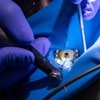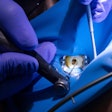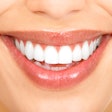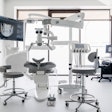
NEW YORK (Reuters Health), Sep 19 - First-trimester exposure to lamotrigine monotherapy is not specifically associated with an increased risk of isolated orofacial clefts, relative to other malformations, according to results of a population-based case-control study appearing in the September 2 issue of the journal Neurology.
"Postmarketing surveillance of the second-generation antiepileptic lamotrigine during pregnancy has recently generated a signal regarding higher risk of orofacial clefts," the researchers note in background information. However, studies to date have not provided enough evidence to confirm or refute the signal.
The current study population covered 3.9 million births from 19 European congenital anomaly registries. Cases comprised 5,511 nonsyndromic orofacial cleft registry entries, while controls were made up of 80,052 nonchromosomal, nonorofacial-cleft entries.
Dr. Lolkje de Jong-van den Berg, from Groningen University Institute for Drug Exploration in the Netherlands, and colleagues identified 72 lamotrigine-exposed entries -- 40 monotherapy and 32 polytherapy.
The researchers report that they failed to find evidence of an increased risk of isolated orofacial clefts relative to other nonchromosomal malformations for lamotrigine monotherapy exposure (adjusted odds ratio, 0.80). There was also no evidence of an increased risk for isolated cleft palate (adjusted OR, 1.01).
"We found an increased risk of orofacial cleft relative to other nonchromosomal malformations for antiepileptic drug exposure in general, which is consistent with much of the literature on drugs such as valproic acid and carbamazepine commonly used by epileptic mothers in our study population," Dr. de Jong-van den Berg and colleagues note.
The odds ratios associated with any antiepileptic drug use versus no antiepileptic drug use were 1.43 for orofacial clefts, 1.21 for isolated orofacial clefts, 2.37 for cleft palate, and 1.86 for isolated cleft palate.
The current study, they conclude, does not support an increased relative risk of orofacial clefts with first-trimester exposure to lamotrigine.
Nonetheless, the authors of an editorial published with the study say, "future studies need to address the inconsistencies or lack of information on differential prevalence of malformations across antiepileptic drugs and to determine the underlying genetic risks and molecular mechanisms which cause these defects."
Last Updated: 2008-09-18 12:06:57 -0400 (Reuters Health)
Copyright © 2008 Reuters Limited. All rights reserved. Republication or redistribution of Reuters content, including by framing or similar means, is expressly prohibited without the prior written consent of Reuters. Reuters shall not be liable for any errors or delays in the content, or for any actions taken in reliance thereon. Reuters and the Reuters sphere logo are registered trademarks and trademarks of the Reuters group of companies around the world.



















